
Ultimate Termite Control: Charleston, SC’s Premier Protection
Though small, termites pose a big problem in Charleston, SC. In a city of historic single houses, raised cottages, and coastal neighborhoods, the combination of year-round humidity, summer storms, king tides, and abundant wood structures creates ideal conditions for termite activity. With colonies that can number in the millions, any indication of a termite infestation must be taken seriously and acted upon immediately. Left unchecked, termites can cause significant structural damage—weakening joists and sills, hollowing porch columns, and compromising crawl-space framing—leading to costly repairs, reduced property value, or, in extreme cases, structural failure.
At All U Need Pest Control, we provide customized termite solutions built specifically for Lowcountry homes—whether you’re on the Peninsula, West Ashley, Mount Pleasant, Daniel Island, James or Johns Island, North Charleston, Hanahan, Goose Creek, Summerville, or the barrier islands (Sullivan’s Island, Isle of Palms, and Folly Beach). We tailor your plan to your structure type (pier-and-beam, slab, or raised), moisture conditions, and neighborhood pressure. From non-repellent liquid treatments to Sentricon® baiting systems, borate wood protection, and crawl-space moisture management, our goal is straightforward: eliminate termites fast and keep them from coming back. Don’t wait for things to get worse—call us today at 1-888-239-BUGS (1-888-239-2847) to schedule an inspection and protect your Lowcountry home.
Pest Control Services in Charleston, SC
- Ant Control
- Bed Bug Control
- Beetle Control
- Cockroach Control
- Flea Control
- Home General Pest Control
- Hornet Control
- Millipede Control
- Mosquito Control
- Pantry Pest Control
- Rat & Rodent Control
- Scorpion Control
- Silverfish Control
- Spider Control
- Stink Bug Control
- Tick Control
- Wasp Control
- Winter Control
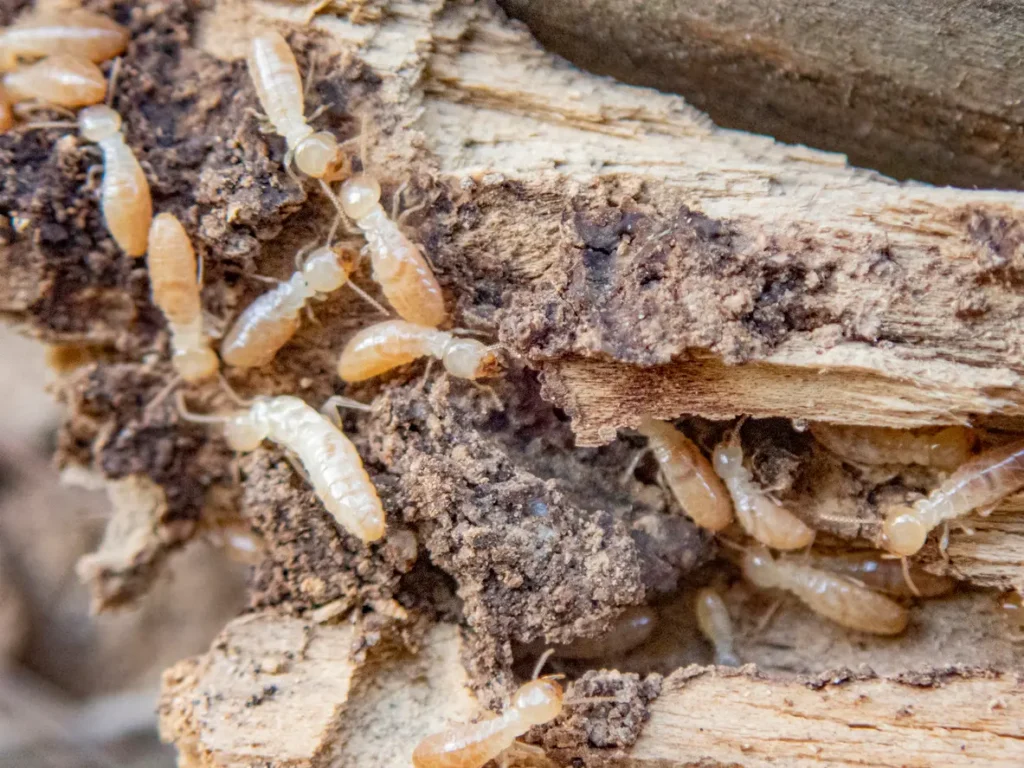
How to Get Rid of Termites in Charleston, SC
If you have a termite infestation, seek professional help immediately. Charleston’s climate accelerates termite metabolism and colony growth, and many homes include ventilated crawl spaces, brick piers, decorative lattice, and abundant exterior trim that can mask activity until damage is advanced. The earlier you contact a professional service like All U Need Pest Control, the faster you can stop the infestation and avoid costly repairs.
Professional assistance is essential because different termite species behave differently in coastal South Carolina. Subterranean termites (including the highly aggressive Formosan subterranean termite) require soil access and high moisture and often attack from hidden points in crawl spaces and expansion joints. Drywood termites can arrive via infested furniture or trim and live entirely inside wood without soil contact. Our licensed experts identify the exact termite species, locate moisture and entry routes, and design a plan that addresses your home’s structure and Charleston’s environmental pressures.
At All U Need Pest Control, we use several effective approaches to eliminate termites:
- Non-Repellent Liquid Treatments (Perimeter & Spot): Applied to soil along the foundation, piers, and expansion joints to create an invisible treated zone that termites cannot detect. For pier-and-beam homes, we treat key crawl-space contact points and high-risk plumbing penetrations so foragers are intercepted before they reach sill plates and subflooring.
- Sentricon® Colony Elimination System: We strategically install bait stations around your property to intercept foragers. Worker termites feed on the bait and carry it back to the colony—including the queen—leading to total colony suppression. This approach excels against Formosan pressure in Charleston, where foraging networks often run beneath multiple lots and rights-of-way.
- Borate Wood Treatments: For accessible framing (especially in crawl spaces or during renovations), we apply borate solutions that penetrate wood and make it unpalatable to termites—ideal for preventing reinfestation in high-moisture neighborhoods or after moisture corrections.
- Moisture Management: Because termites thrive where it’s damp, we fix the conditions that invite them. Recommendations may include crawl-space vapor barriers or encapsulation, improved ventilation or dehumidification, downspout extensions, grading corrections, and pulling mulch or pine straw away from siding and brick piers.
- Focused Interior/Structural Spot Work: In cases of localized drywood activity, we use precision injections and crack-and-crevice treatments while minimizing disruption to historic finishes common in Charleston homes.
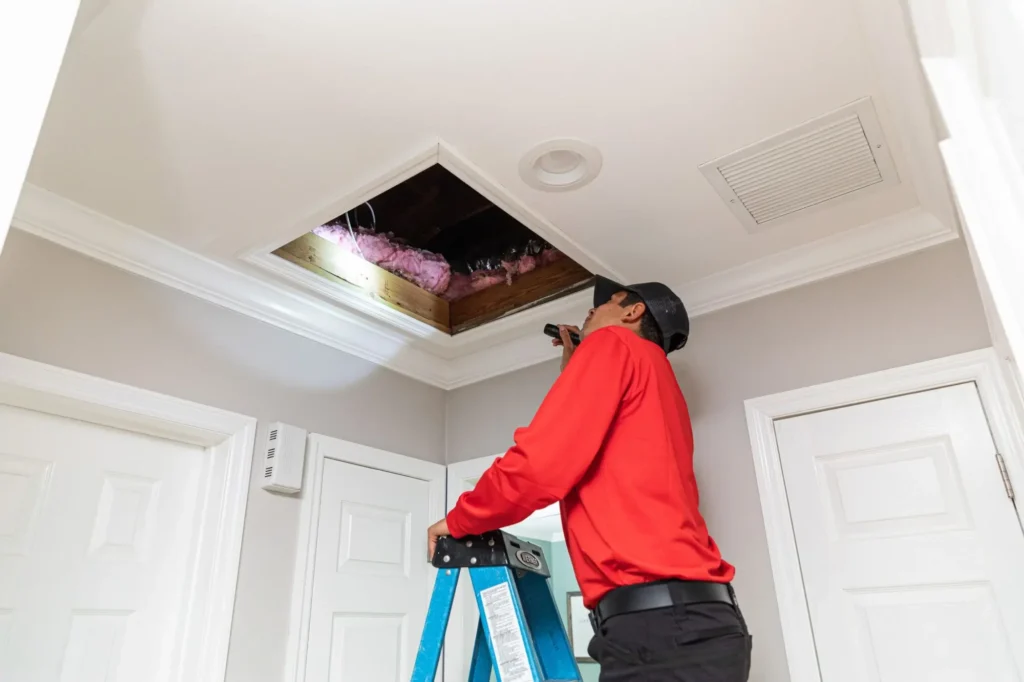
Signs of a Termite Infestation
Charleston’s swarm season typically runs from spring into early summer (with Formosan swarms often on warm, humid nights in May and June). If you suspect an issue, look for:
- Winged swarmers around porch lights and windows on warm, humid evenings
- Piles of discarded wings on windowsills, near door frames, and beneath light fixtures after night swarms
- Mud tubes on foundation walls, brick piers, or in crawl spaces; thin, earthen “straws” bridging gaps to wood
- Wood that sounds hollow when tapped; blistered paint or sagging trim; pellet-like frass for drywood termites
Swarmers signal a mature colony nearby. Discarded wings inside or around thresholds often mean termites swarmed from or into your structure. Mud tubes protect subterranean termites as they move from soil to wood while keeping humidity stable. In Charleston’s raised homes, tubes often appear on the inner faces of crawl-space piers, on sill plates, and along masonry cracks. Hollow-sounding wood, buckling floors, and soft spots in porch steps or columns can indicate hidden galleries. For drywood termites, sifted piles of frass that resemble coffee grounds near baseboards or window casings are common clues.
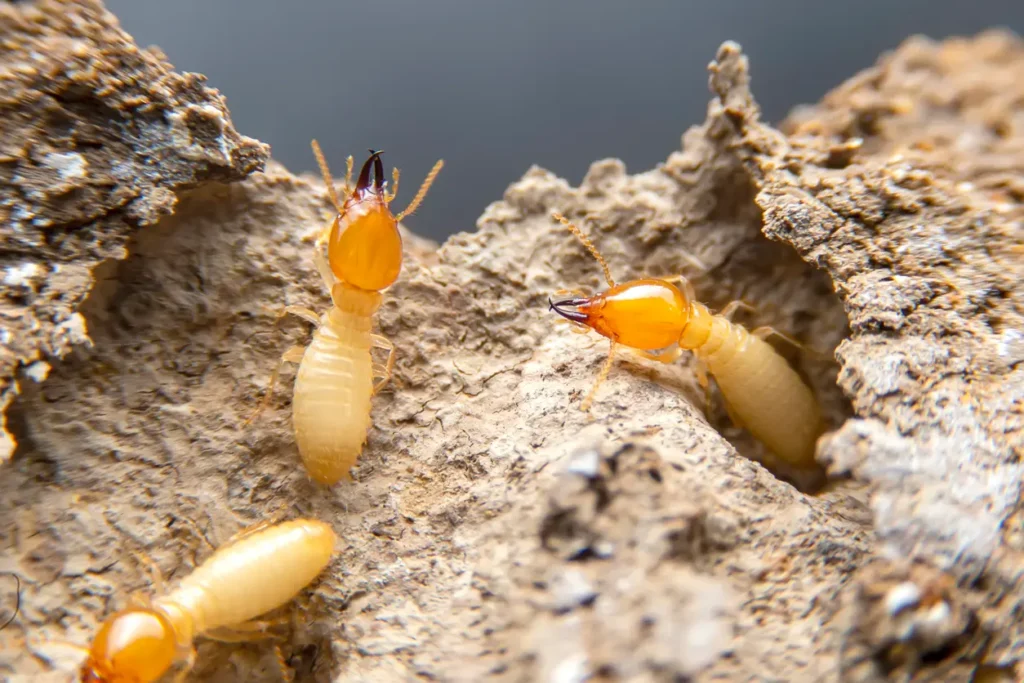
Types of Termites in Charleston, SC
Termite colonies are divided into workers, soldiers, and reproductives. Workers gather food, build tunnels, and tend young; soldiers defend; reproductives (swarmers) establish new colonies. Charleston’s warm, humid climate—and the prevalence of crawl spaces, porches, and dense tree cover—supports several destructive species. Understanding each type helps you respond quickly and choose the right protection.
Subterranean Termites
These are the most destructive termites in Charleston. They nest in the soil and build mud tubes to maintain moisture and protect themselves en route to wood. Subterraneans frequently exploit moist crawl spaces, leaking plumbing, poorly drained downspouts, and mulch packed against siding. Colonies can stretch across property lines, so neighborhood foraging pressure matters—especially in older blocks with mature trees and aged infrastructure.
A critical Lowcountry note: Formosan subterranean termites—prevalent in Charleston—build enormous colonies and consume wood rapidly. Their swarms typically occur on warm, humid evenings in late spring and early summer. Formosans can also create aerial nests in moist, above-ground locations such as wall voids or roof lines. That’s why our subterranean plans here almost always blend colony-elimination baiting with moisture control in crawl spaces and along roof and gutter systems.
Drywood Termites
Drywood termites do not require soil contact; they live entirely within wood—furniture, trim, window casings, and structural members. In Charleston, they may arrive with secondhand furnishings, coastal shipments, or older exterior trim. Because drywood colonies are smaller and hidden, you’ll often see frass piles, occasional swarmers indoors, and localized damage rather than long mud tubes. Our plans focus on precise identification, targeted injections, selective wood replacement, and preventive borate treatments during renovations or repainting. In historic interiors, this approach preserves finishes while eliminating active pockets.
Dampwood Termites
Dampwood termites favor moist, decaying wood—chronically wet timbers, ground-contact materials, or long-standing leaks. They’re less common in well-maintained structures but can appear where crawl spaces stay wet, decks trap water, or landscaping holds moisture against siding. In Charleston’s rainy, humid climate, dampwood pressure can spike after extended storms or flood events. The fix is straightforward: dry the area, replace compromised wood, and, if needed, add localized treatments to prevent reinfestation.
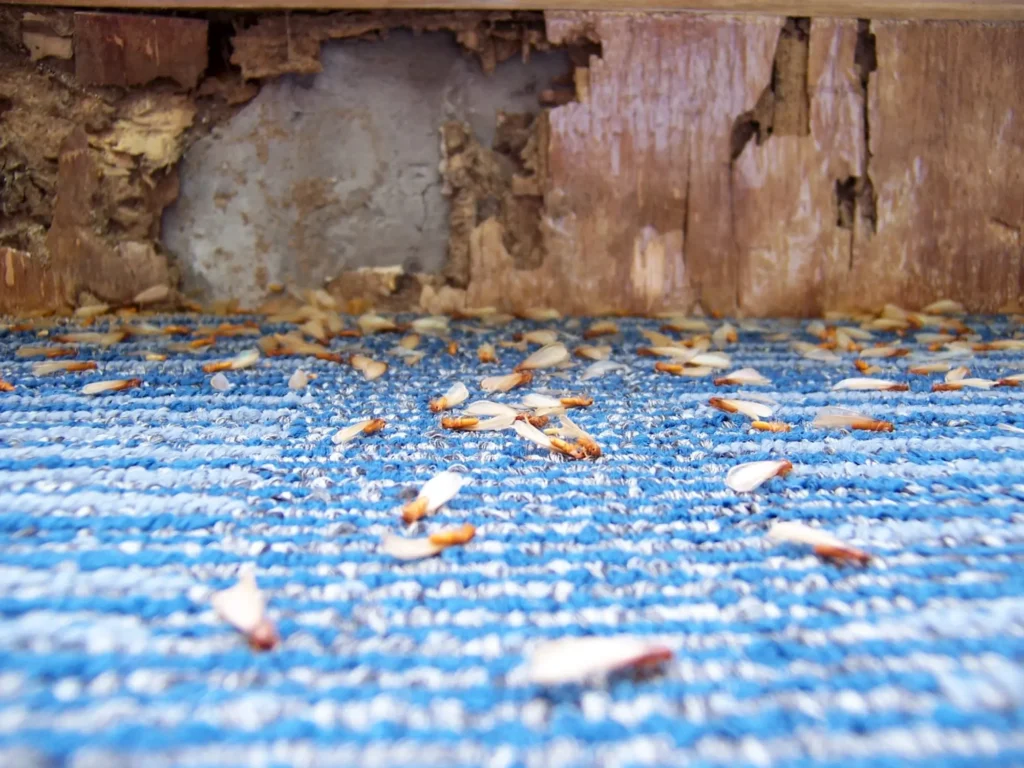
Risks Associated with Termites
Termites pose significant risks to both property and long-term safety. Financially, the damage can be immense—joists, sill plates, subflooring, and ornate porch columns are costly to replace, and historic trim may be irreplaceable. Subterranean termites can operate unseen for years, quietly undermining load-bearing elements. Formosan termites can escalate minor issues into major structural repairs in a single season because of their enormous colony size and rapid feeding.
While termites don’t transmit diseases to humans, their activity is strongly associated with moisture problems. Galleries and hidden voids can foster mold and mildew, and people with asthma or allergies may experience worsened symptoms when spores or fine wood dust circulate. Ultimately, the risks are structural, financial, and environmental—which is why Lowcountry homes benefit from permanent monitoring and prevention rather than one-time reactive treatments.
Eco-Friendly Solutions
At All U Need Pest Control, we use eco-conscious methods that protect Charleston’s sensitive coastal ecosystems while delivering durable results. Our treatments are EPA-approved and selected to minimize product in living areas. We prioritize non-repellent technology, colony-elimination baiting, and borate wood protection, then pair them with moisture reduction and exclusion so your home stays protected with a lighter footprint. Prefer an exterior-first approach—common in historic homes with delicate interiors? We’ll design your plan accordingly and target the termite pressure where it begins.
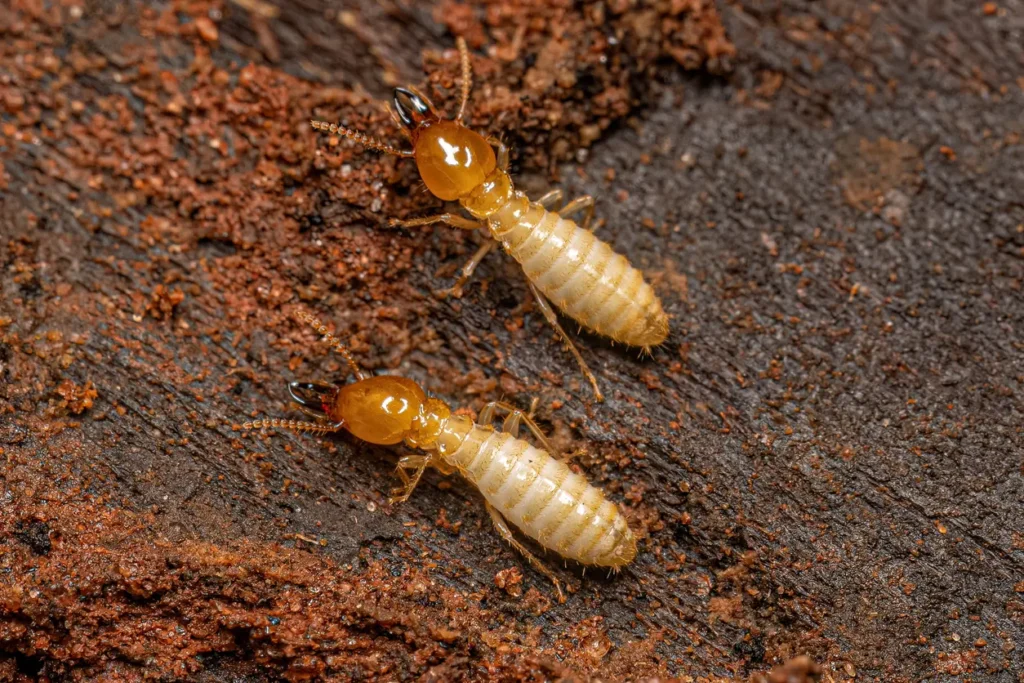
How to Prevent Termite Infestations in Charleston, SC
Prevention is essential in the Lowcountry, where warmth and humidity keep termites active. Moisture control is the single biggest lever you can pull.
- Manage water well. Keep gutters and downspouts clear and extend them to discharge several feet from the foundation. Correct low spots where water pools near porch steps or crawl-space doors. Ensure sprinkler heads don’t soak siding or the first foot of soil along the house.
LIST:
LI: Dry the crawl space. Maintain intact vapor barriers; consider encapsulation and dehumidification if humidity stays high. Seal or screen crawl-space doors and vents so airflow is preserved but pests stay out.
- Limit wood-to-soil contact. Replace ground-contact trim or lattice with properly flashed materials. Use concrete or masonry isolation for fence posts and deck supports, and keep mulch/pine straw pulled back from the foundation by several inches.
- Choose smarter mulches. In high-pressure areas, consider stone or rubber for the last 8–12 inches by the foundation. If you prefer pine straw, keep it thin and off the walls.
- Be careful with secondhand wood/furniture. Inspect for frass and tiny kick-out holes before bringing items indoors, especially in historic homes with finished heart pine floors and trim.
- Schedule annual inspections. Professional monitoring catches subtle changes—new tubes in a corner of the crawl space, wing sheds after a humid evening, or bait-station hits along a fence line—before small issues become big repairs.
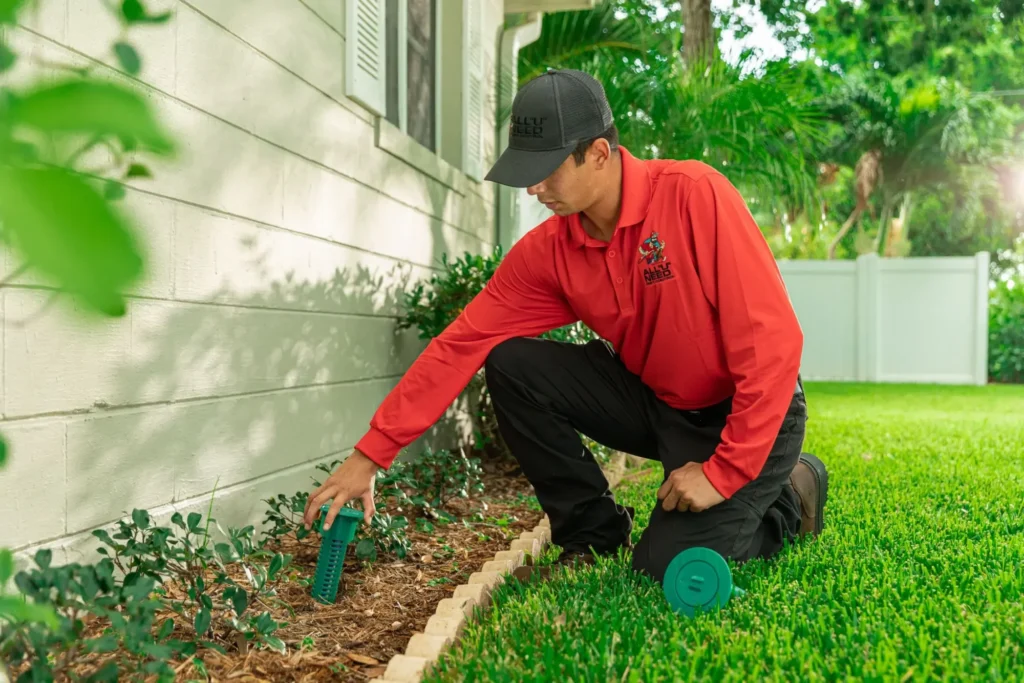
Take Care of Your Termite Problems in Charleston, SC
Termites are a serious threat in Charleston. Don’t let them damage your home—contact All U Need Pest Control today. We begin with a detailed inspection, provide a clear plan and price, and start resolving your termite problem quickly. We also offer free inspections for homeowners who want to assess their risk before the next swarm season. Whether you live in a historic single off Rutledge, a townhome on Daniel Island, or a ranch in West Ashley, we’ll tailor the solution to your structure and your neighborhood’s pressure.
Preventative Termite Treatments
At All U Need Pest Control, we don’t just eliminate current infestations; we install defenses that prevent future termite problems year after year.
- Sentricon® Colony Elimination System: Our flagship preventative solution surrounds your home with scientifically designed stations that intercept and eliminate colonies—a proven fit for Charleston’s Formosan pressure and interconnected subterranean networks.
- Perimeter Re-Treats & Monitoring: Periodic checks keep non-repellent zones intact and confirm there are no new access points along expansion joints, plumbing penetrations, or crawl-space interfaces.
- Borate Wood Protection: For accessible framing, porches, and renovations, we apply borate to make wood a long-term poor food source. Ideal for homes with frequent storms, king-tide flooding, or lush landscaping.
- Moisture & Exclusion Upgrades: From vapor barriers and dehumidification to downspout extensions, grading corrections, and weep-hole screens, we implement the fixes that reduce termite pressure at the source.
What sets All U Need Pest Control apart is our Charleston-specific expertise and commitment to environmentally responsible treatments. Our technicians understand how live oaks over roofs, pier-and-beam transitions, and historic materials change the risk picture—and they’ll communicate clearly, arrive on time, and stand behind the results. With All U Need Pest Control on your side, you can rest assured your home has the right protection for the Lowcountry.
Call 1-888-239-BUGS (1-888-239-2847) today to schedule your inspection and keep your Charleston home termite-free with reliable, proactive pest control services.
Location Contact:
419 N Cedar St Summerville, SC 29483
Get Directions for 419 N Cedar StSummerville, SC 29483 on Google Maps843-489-8818
Call All "U" Need Pest Control